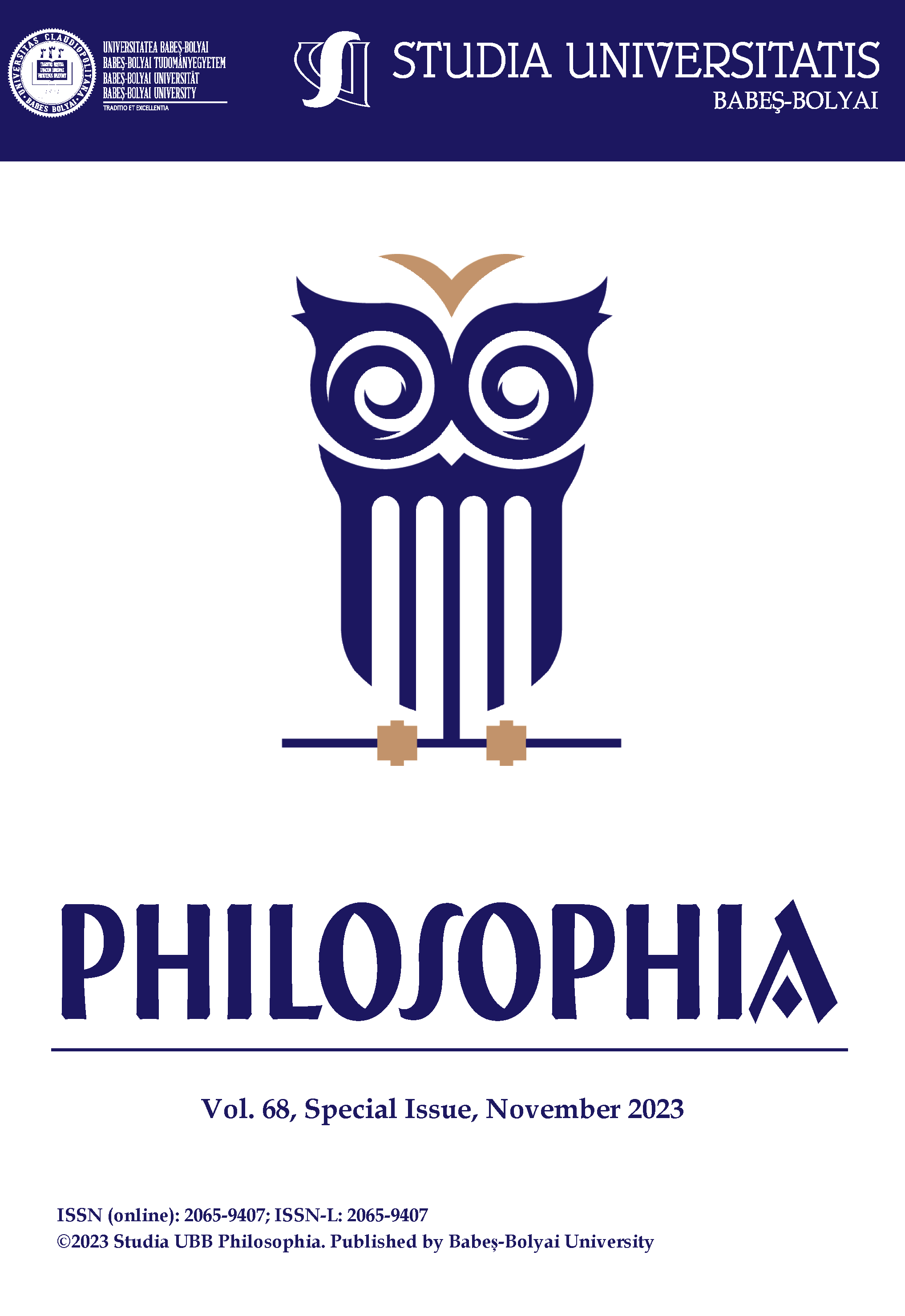Conflicts With Novelty: Intelligibility Crisis and the Case of the Yugoslav Narrative
DOI:
https://doi.org/10.24193/subbphil.2023.sp.iss.03Keywords:
intelligibility crisis, Yugoslavia, social narratives, meaning, conflicts, harmony.Abstract
This paper deals with the notion of intelligibility crisis in terms of conflict and harmony. Namely, we will analyze the notion of intelligibility from MacIntyre’s philosophical opus and apply it to the historical case. Intelligibility, according to MacIntyre, is the notion which provides us with contextual meaning and embeds our actions with sense within the specific tradition. Intelligibility crisis is the term that is coined to provide a descriptive account of the phenomenon when we cannot connect ourselves with a new social context in which we find ourselves in. To further elaborate on this and apply it onto an example, we shall use the historical case of the Yugoslavian nation. We will provide analysis between three different contextual narratives – pre-Yugoslav narrative, Yugoslav narrative, and post-Yugoslav narrative. After applying the notion of intelligibility crisis onto this historical case study, we will notice how people of one social narrative lose intelligibility by going into another social narrative. Furthermore, we shall consider the notions of conflicts and harmony as those that are connected to intelligibility. The main argument from the descriptive state of things which was offered would be the following – conflicting sentiments arise when we are not in harmony with the narrative within which we have attained intelligibility.References
A. Djilas, Tito's Last Secret: How Did He Keep the Yugoslavs Together? In Foreign Affairs vol. 74, no. 4, Council of Foreign Relations, 1995.
A. Finlan, The Collapse of Yugoslavia 1991-99, Osprey Publishing, Oxford, 2004.
A. MacIntyre, After Virtue: A Study in Moral Theory, Notre Dame Press, Indiana. 1981.
A. Rudd, Kierkegaard, MacIntyre and Narrative Unity—Reply to Lippitt in Inquiry: An Interdisciplinary Journal of Philosophy, vol.50, no.5, 2007.
Brittanica.com, Black Lives Matter, site: https://www.britannica.com/topic/Black-Lives-Matter accessed: 29.03.2022.
C. Jelavich, Serbian Nationalism and the Question of Union with Croatia in the Nineteenth Century in Balkan Studies, Thessaloniki, 1961.
D. Djokić, Vek Jugoslavije: Kako i Zašto su Srbi, Hrvati i Slovenci Stvorili Zajedničku Državu in Tragovi vol. 2, no. 1, 2018.
D. M. Goldstein, K. Hall, Postelection surrealism and nostalgic racism in the hands of Donald Trump in HAU: Journal of Ethnographic Theory, 7, no.1, 2017.
D. Matić, Is Nationalism Really That Bad? The Case of Croatia in Democratic Transition in Croatia: Value Transformation, Education & Media, Texas A&M University, Texas, 2007.
D. Schiefer, J. van der Noll, The Essentials of Social Cohesion: A Literature Review in Social Indicators Research, vol. 132, 2017.
E. Keating, Z. Ritter, news.gallup.com, Many in Balkans Still See More Harm from Yugoslavia Breakdown, site: https://news.gallup.com/poll/210866/balkans-harm-yugoslavia-breakup.aspx accessed: 30.03.2023.
H. Meretoja, The Ethics of Storytelling: Narrative Hermeneutics, History and the Possible, Oxford University Press, New York, 2018.
J. Connelly, Reasoning Through Crisis, Incommensurability and Belief in Revue Française de Civilisation Britannique XXI-2, 2016.
J. R. Lampe, The Failure of Yugoslav National Idea in Studies in East European Thought, Springer, 1994.
K. N. Breidahl, N. Holtug, K. Kogshoj, Do shared values promote social cohesion? If so, which? Evidence from Denmark, in European Political Science Review vol. 10, no. 1, 2018.
M. Calic, A History of Yugoslavia, Purdue University Press, Indiana, 2019.
M. R. Sommers, G. D. Gibson, Reclaiming the Epistemological Other: Narrative and the Social Constitution of Identity in Social Theory and Politics of Identity, Oxford: Basil Blackwell, 1993.
M. R. Sommers, The Narrative Constitution of Identity: Relational and Network Approach in Theory and Society vol. 24, no. 5, 1994.
M. Schechtman, The Narrative Self in The Oxford Handbook of the Self, 2011.
N. Chushak, Yugonostalgic against All Odds: Nostalgia for Socialist Federal Republic of Yugoslavia among Young Leftist Activists in Contemporary Serbia in School of Social and Political Science, PhD thesis, University of Melbourne, 2013.
Nature.com, What Data Say About Police Brutality and Racial Bias – And Which Reforms Might Work, site: https://www.nature.com/articles/d41586-020-01846-z accessed: 29.03.2023.
News.stanford.edu, Stanford Psychologist Identifies Seven Factors that Contribute to American Racism, site: https://news.stanford.edu/2020/06/09/seven-factors-contributing-american-racism/ accessed: 29.03.2023.
P. J. Cohen, Serbia’s Secret War: Propaganda and the Deceit of History, Texas A&M University Press, Texas, 1996.
S. C. Wright, G. Baray, Models of Social Change in Social Psychology: Collective Action or Prejudice Rejection? Conflict or Harmony?, in Beyond Prejudice: Extending the Social Psychology of Conflict, Inequality and Social Change, Cambridge University Press, New York, 2012.
S. L. Burg, Conflict and Cohesion in Socialist Yugoslavia: Political Decision Making Since 1966, Princeton University Press, New Jersey, 1983.
S. P. Ramet, Balkan Babel: The Disintegration of Yugoslavia from the Death of Tito to the Fall of Milošević, Westview Press, Colorado, 2002.
V. Pešić, Serbian Nationalism and the Origins of the Yugoslav Crisis, United States Institute of Peace, Washington, 1996.
Downloads
Published
How to Cite
Issue
Section
License
Copyright (c) 2023 Studia Universitatis Babeș-Bolyai Philosophia

This work is licensed under a Creative Commons Attribution-NonCommercial-NoDerivatives 4.0 International License.





